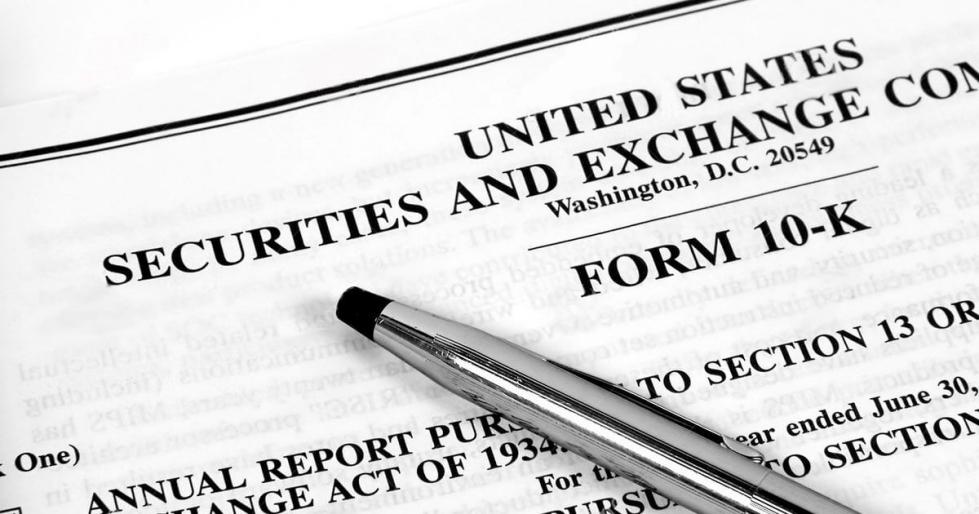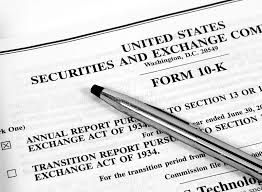Definition of Form 10-K
Triston Martin
Nov 02, 2022
Publicly traded corporations must submit an annual business disclosure report known as a Form 10-K to the Securities and Exchange Commission (SEC). Before buying or selling the company's stock or investing in its corporate bonds, an investor will find almost all of the information about the company they may desire included in this document. These are the following:
- Revenues
- Changes in management
- Concerning areas and the level of competitiveness
- Existing methods and procedures
- Future plans
The essential component of the Form 10-K filing is the financial statements, which include the income statement, the balance sheet, and any other statements that detail how much money a firm earned, how much debt it had, and any additional relevant information. When taken together, they provide insight into the current state of a company's financial situation. The papers are available for no cost and may be obtained online from the websites of companies as well as public databases like EDGAR that are maintained by the SEC.
Who Needs to Fill Out a Form 10-K?
Public firms are required to submit Form 10-K. Investors and potential investors will utilize it after it has been submitted to the appropriate authorities. It allows students to investigate the processes by which a firm functions and generates money. In addition, it details the locations where the firm does its business and the threats and challenges it confronts, such as any pending or active legal actions. Due to this information's availability, investors can now make educated judgments on whether or not they should trade or buy shares in the firm.
Advantages of Having a Form 10-K
Investors get a big advantage from a Form 10-K since it reveals information about a company's financial health that is sometimes impossible to obtain from any other source. The way that current accounting regulations are worded makes it possible for management to avoid setting aside any reserves if they cannot accurately predict the potential harm that a particular risk may cause. This indicates that the risk is not reflected in the company's financial statements.
The laws of accounting prevent many types of debt from being shown on a company's balance sheet, which may lead to a business's bankruptcy. However, the payments must be declared by the law when Form 10-K is submitted.
Imagine you had no financial obligations and operated a modest clothes store in a nearby shopping mall. You entered into a leasing agreement with the shopping centre's owner, which stipulated a monthly rent payment of $10,000. You could have been required to declare very little or perhaps no debt on your balance sheet if the criteria that dictated how financial information had to be presented before 2016 had been followed. Companies are now required to report their lease obligations by updated accounting requirements.

If your firm experiences a drop in income and you cease submitting rent checks to the landlord, the owner of the mall in which you have a storefront may evict you and put your business into bankruptcy due to the missing lease payment. These obligations are also reported in some part of the Form 10-K, most often inside a section that is either titled "operating leases," "fixed payments," or "minimum cash payments due." The Form 10-K has several significant sections that, when combined, provide investors with essential information.
Accounting Policies and Practices
Imagine for a moment that you are thinking about buying shares in a company that makes washing machines. The corporation is all of sudden featured in the top stories on national news outlets because thousands of models are failing beyond the point of repair. Is the corporation obligated to take them back from the consumers if they are returned? When submitting its Form 10-K, a firm must disclose its warranty policy and estimate the expenses associated with providing warranties for items that it sells or produces.
Letters Personally Signed by the CEO and CFO
The Chief Executive Officer and Chief Financial Officer must provide signed documents affirming under oath that the company's records are correct to the best of their knowledge. The government may use these letters as evidence in court cases against CEOs who intentionally lied on their Form 10-K or in other required disclosures.

Letter From the Independent Auditor
This letter should include specifics on the breadth of the auditing company's certification of the financial records and any significant shortcomings that the firm discovered during its examination. You could find the auditor referring to a query about the company's capacity to "continue as a going concern" or anything along those lines if the auditor believes that the business might fail shortly. You should immediately be on high alert if you ever come across anything similar to those terms.







